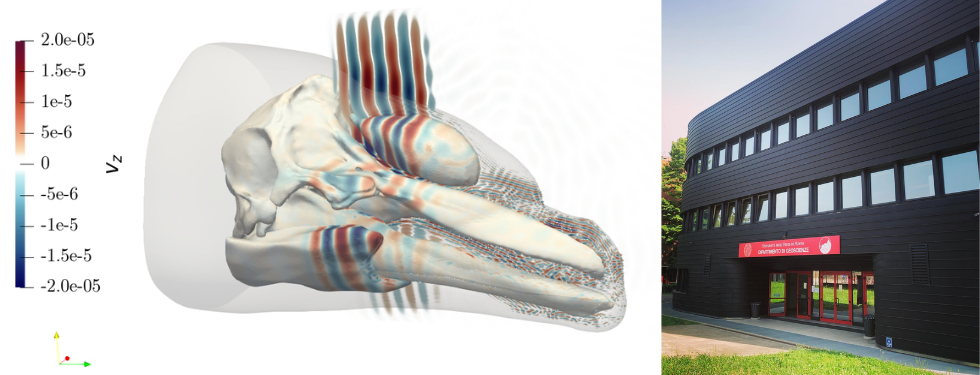SWIM: aSsessing the Impact of offshore Wind turbines on Marine mammals in the Adriatic sea


Title: SWIM: aSsessing the Impact of offshore Wind turbines on Marine mammals in the Adriatic sea
Principal Investigator: Lapo Boschi | Programme: PNRR DD 1409 del 14/09/2022
Total Contribution € 166.958,00 | Project Duration: 24 months

People use seas and oceans in a variety of industrial and recreational activities – from commercial shipping to yachting, from resource exploration to wind power – that are quickly expanding. All such activities result in the emission of sounds, often very loud, that propagate through water at possibly long distances. The growth of ocean economy means that such man-made noises are becoming dominant in marine soundscapes all over the world. It has been observed that this can be very disruptive to marine life, but the full extent of such disruption has not been quantified. Scientific knowledge of underwater noise pollution is quickly growing, but still very limited: research is needed to provide policy makers with guidelines, that are crucial to taking advantage of marine resources in a sustainable way. Future noise pollution models must include precise information on (i) specific noise sources; (ii) the propagation of elastic waves in marine environments; (iii) the impact of noise on individual marine species. SWIM addresses the entire source-receiver path of noise pollution, from step (i) to (iii), focusing on one source of noise – offshore wind turbines – one region – the Adriatic Sea – and one taxonomic group – toothed whales. The research we propose to conduct is motivated by current plans to install offshore wind power plants along much of the Italian coast, with many candidate sites in the Adriatic Sea, and one plant already operational off Taranto.
Because wind power is potentially an important source of renewable energy, it is crucial to assess quantitatively and without any bias the impact that it might have on the marine ecosystem. It is also necessary, today, to provide young scientists with the interdisciplinary toolbox required to face new environmental issues related to the blue economy. Specifically, SWIM contributes to understanding how the new wind farms might impact toothed whales, depending on their characteristics (e.g., fixed vs floating turbines) and their location. Toothed whales, more than other species, are likely to be directly affected by noise pollution, as their survival is contingent upon their utilization of an extremely precise biosonar system. Our efforts will help mitigating disruptive effects so that new plants are truly sustainable. The themes we propose to address require competences from multiple disciplines and, accordingly, ours is an interdisciplinary group of researchers with backgrounds in physics, the earth sciences, and biology. This document describes how we plan to implement the observational study of marine soundscapes; the numerical modeling of sound propagation in the area of interest; the modeling of the interaction of sound with toothed-whale anatomy.





